In this special Columbus Day encore episode, Professor William J. Connell, who is an expert on Italian history, joins Tim to talk about the life of Christopher Columbus. Bill is an Andrew Carnegie Fellow and holder of the La Motta Endowed Chair in Italian History at Seton Hall University. He’s also the co-editor of the Routledge History of Italian Americans. In this episode, we’ll learn about Christopher Columbus, and as cliché as it may sound, the man, the myth, the legend. This episode was initially published on July 20, 2020. https://traffic.libsyn.com/forcedn/shapingopinion/133_-_Who_Was_Christopher_Columbus.mp3 Christopher Columbus was an explorer who made four trips across the Atlantic Ocean from Spain, but he was not Spanish. He was Italian. He made those trips in 1492, in 1493, again in 1498, and then in 1502. The purpose of his maiden voyage was to find a direct over sea route from the western part of Europe to Asia. In that sense, he failed. But as with many explorers, inventors and discoverers, what they find in the course of their failures sometimes leaves a legacy that they themselves never could have imagined. Christopher Columbus may not have actually been the first non-native person to step foot on what would become the Americas, but one thing is clear. It was Christopher Columbus who changed the course of history when he came upon the New World, already occupied by millions of people, but unknown to Western Civilization. Dr. William Connell of Seton Hall University has spent a good deal of his career studying and teaching the complexities and the nuances of the Christopher Columbus story. As a historian, he has kept the first rule of the study of history in mind. You can’t judge the past based on present-day perspectives. Christopher Columbus Christopher Columbus, the son of a wool merchant, was born in Genoa, Italy, in 1451. When he was still a teenager, he took a job on a merchant ship. He remained at sea until 1476, when pirates attacked his ship as it sailed north along the Portuguese coast. The boat sank, but the young Columbus floated to shore on a scrap of wood and made his way to Lisbon, where he eventually studied mathematics, astronomy, cartography and navigation. He also began to hatch the plan that would make him famous. The Attraction of a New Trading Route During the 15th and 16th (1400s and 1500s) centuries, Europeans led expeditions overseas in the hope that explorers would find riches and new lands. The Portuguese were the earliest participants in this age. Around 1420, small Portuguese ships went along the African coast, carrying spices, gold, slaves and other goods from Asia and Africa to Europe. Other European nations, including Spain, wanted to share in the exotic riches of the “Far East.” In the 15th century (1400s), Spain expelled Jews and Muslims from the kingdom after centuries of war. Set its sights elsewhere. Trade Routes At the end of the 15th century, you couldn’t reach Asia from Europe by land. The route was long and arduous, hostile armies. Portuguese explorers used the sea: They sailed south along the West African coast and around the Cape of Good Hope. Columbus had his own ideas: Sail out across the Atlantic to the West in the opposite direction. Instead of around the massive African continent. His point was that the circumference of the Earth was much smaller than his contemporaries believed it was. He thought the journey by boat from Europe to Asia should be not only possible, but comparatively easy via an as-yet undiscovered passage. He pitched his ideas to leaders in Portugal and England but no one took him up on his plan. In 1492 he found a likeminded resource -Spanish royalty Ferdinand and Isabella. Columbus’s contract with the Spanish rulers promised that he could keep 10 percent of whatever riches he found, along with a noble title and the governorship of any lands he should encounter.
Shaping Opinion
The Shaping Opinion podcast helps you see through the spin. It reveals things you may not know, and it exposes other things some may want to keep hidden. Its focus is on how your thoughts and attitudes are influenced to create change in the culture, sometimes for better, sometimes for worse.
Host Tim O’Brien – author, senior media advisor and veteran damage control expert – empowers you with a fresh perspective. He comfortably takes you inside trending issues, stories and to the people who unravel it all through deep-dive conversations. After decades in handling high stakes and complex crisis management situations, Tim probes to uncover what’s real and what matters, and what will shape the future. Watch or listen every Monday wherever you get your podcasts.
The Shaping Opinion podcast helps you see through the spin. It reveals things you may not know, and it exposes other things some may want to keep hidden. Its focus is on how your thoughts and attitudes are influenced to create change in the culture, sometimes for better, sometimes for worse.
Host Tim O’Brien – author, senior media advisor and veteran damage control expert – empowers you with a fresh perspective. He comfortably takes you inside trending issues, stories and to the people who unravel it all through deep-dive conversations. After decades in handling high stakes and complex crisis management situations, Tim probes to uncover what’s real and what matters, and what will shape the future. Watch or listen every Monday wherever you get your podcasts.Listen on
Substack App
Apple Podcasts
Spotify
RSS Feed
Recent Episodes


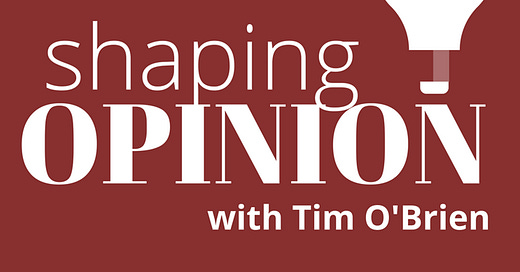



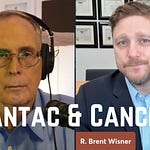

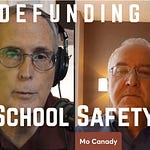
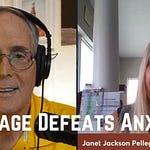
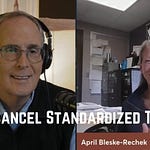



Share this post